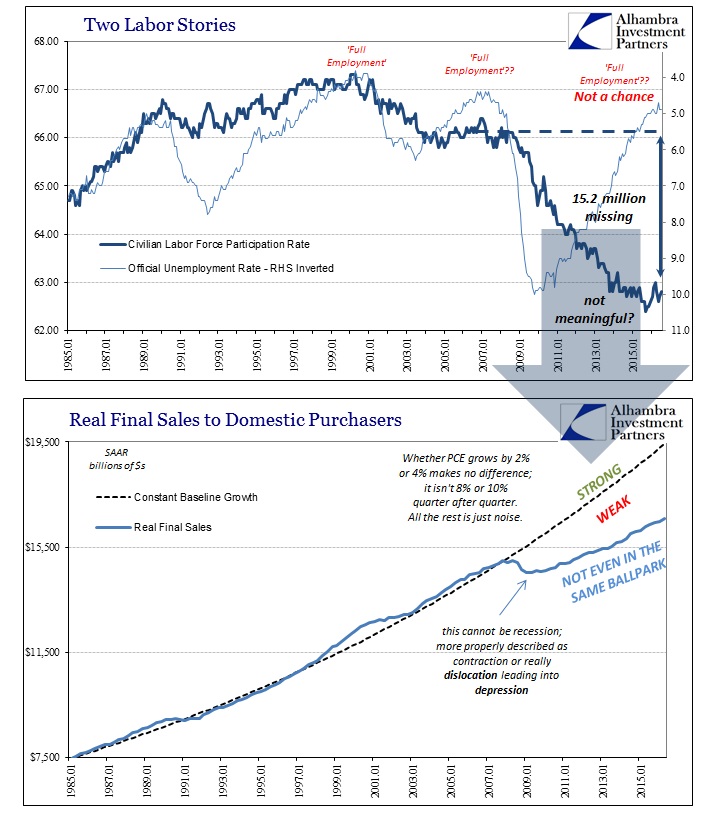Regulating banks with a balance sheet larger than many countries GDP isn't exactly what I would call micro-management. I really can't follow what you are trying to imply after that. Financial stability is improved if banks aren't allowed to gamble deposits away though. Financial stability is also improved if faltering banks can be prohibited from paying out their last cash to shareholders before folding on its debts.
You don't seriously believe this bill will keep any future government from bailing out another bank, if it deems that necessary, do you? Of course they will. And this bill makes it a) more likely to become necessary and b) more expensive when necessary.
I am not entirely sure in how much depth/detail/complexity I should answer, because I don´t know your background. I try to start somewhere so we can see where we end up.
#1) Banks with lower leverage ratios are more stable
#2) currently hardly any bank has 10%+ ratios. In fact most banks havn´t even half of that. On average the financial system is still ridiculously over-leveraged. (deutsche bank has probably something between 1%-2,5% core capital = time-bomb)
#3) The banks complained about Basel1 and lobbied hard against it. Their claim was that it was not flexible enough, ignores the different risks of different investments and so on.
#4) In the end we ended up with much lower capital requirements in a much more "flexible" system.
#5) After the banking crisis in 08 (and the additional legislation) the leverage ratio decreased only mildly and the consequence is that the whole system is still incredible fragile.
#6) "micro-management": the logic of the government is, that additional oversight makes up for the lack solid capital requirements. The legislator thinks government agencies are able to assess and manage the risk of the individual banks (e.g. they need to approve their risk-management models; accounting standards; come up with plans how to handle bankruptcies/shocks) sufficiently well, so they can rein in, before the next crisis emerges.
#7) From bottom to top this logic is very problematic. I don´t believe that these agencies can do this job. It is too complex, these agencies are just as ignorant as most bankers and they are also extremely biased (why can a bank buy a Greek government bond with (almost) 0% equity?


). Before 08 the USA alone (both federal and state level) had about 115 agencies who should have done this job, but non of them, including the FED, saw the crisis coming. Not even weeks before it hit. They were completely blind-sided.
#8) The consequence of the current approach is that the costs to comply with regulation is increasing a lot, which is incredibly discriminatory against smaller banks. Since 08 we see that big banks capture additional market share on the expanse of smaller banks
#9) bigger banks ("systemic relevant") also have the benefit of getting bailed out, while smaller ones don´t get the same treatment. The moral hazard is unsustainable.
#10) This "micro-management" approach has also other disadvantages when it comes to capital allocation: One very problematic trend is that venture-capital or loans for SME got a lot tighter while these agencies seem to be fine when money is redirected to the most irresponsible and indebted countries ever (e.g. half of europe). It makes no sense at all.
#11) even if we assume the most beneficial view on the situation (=> the government is not heavily influenced by "big business), this approach of micromanaging the market to avoid another crisis will fail. We see asset bubbles all over the world and the same mistakes of the past are repeated in almost exactly the same way. The government has a terrible track record of forecasting (and avoiding) economic crisis and their own incentives are sadly very problematic anyway. I could point to a dozens of examples, where the oversight agencies are failing at the moment, yet for some reason people still trust them.
#12) The only way to create more financial stability (in the current framework) is to get rid of most of the micro-management, but force much higher capital requirements on banks. Is 10% enough? No, but it would be a quantum leap in the right direction. Additionally the moral hazard has to end. Governments have to credibly commit to a "no-bailouts" policy.
--------
#13) Both parties contributed to the current situation. I won´t defend the GOP, because they are terrible. Most of what is said about them ("in the pockets of their donors") is simply true. The same goes for the Dems. They support a system, where big banks are getting preferential treatment ("to big to jail"; bailouts), while the tax-payer has to pay for it. They love to slate wall-street but in reality they are part of the problem; partly due to ignorance and party due to being captured by the same special interests. The fringes of both parties try to fight this, but usually they get ignored. A good example is this
bill that is sponsored by Warren (D-Mass) and Vitter (R-LA): It won´t pass, because there is a strong pro-bail-out-consensus between both parties and in the administration.
#14) the public debate about the issue is missing the point completely, because it is not "good dems vs evil GOP". The idea that Dott-Frank solved the problem of TBTF is ridiculous. People who believe that either don´t know enough about it or are complete and utter morons. Additionally Obama was happy to bail them out and Holder was happy to settle with them. If Eric Holder would have been a Rep, the outrage about his actions would have known no end. Yet, because people are partisan in nature, centre left-wing democrats are able to ignore all of that as long as "their guy" is doing it. The amount of of hypocrisy is painful.
#15) I am only defending the core-concept of the Financial Choice Act and not additional sections that might be very harmful.




